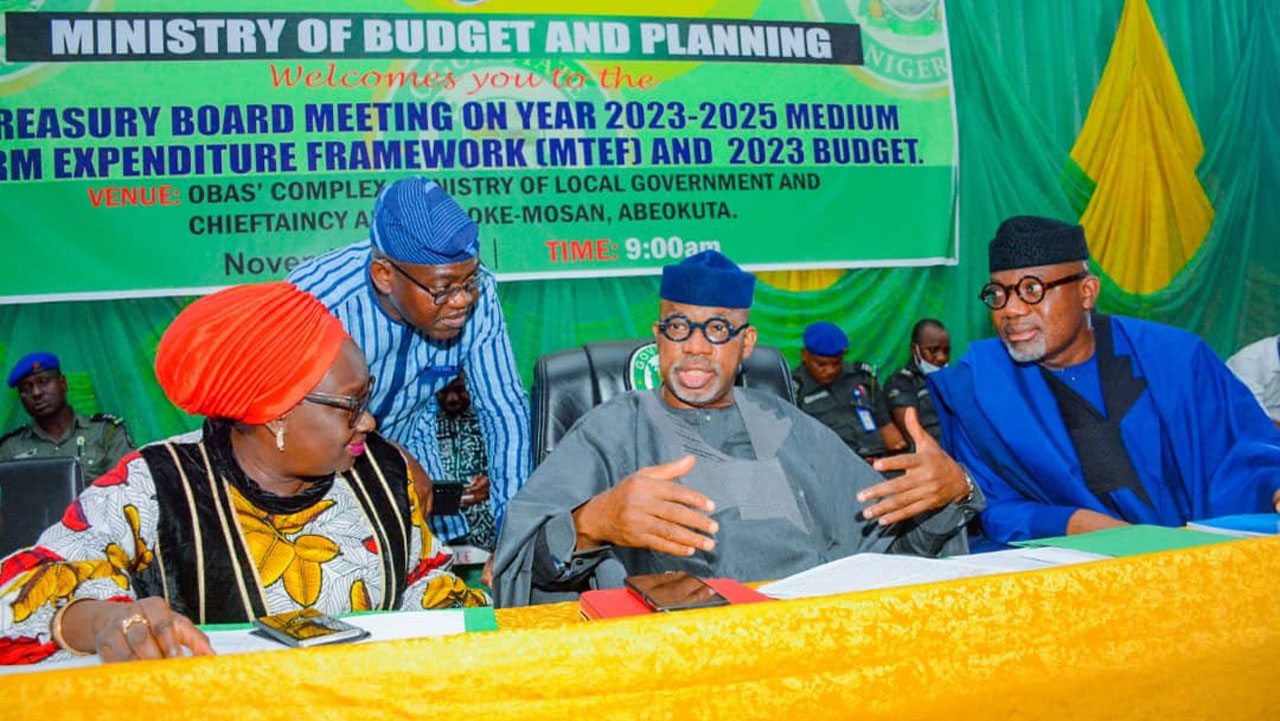
Ogun govt vows to sustain transparency, accountability in governance
Ogun State Governor, Dapo Abiodun, has said that no fewer than 203 inputs, representing 95 per cent of the demands made at the town hall meetings held across the four divisions of the state, have been incorporated into the budget proposal for 2023.
Abiodun disclosed this, yesterday, at the Treasury Board meeting held in Abeokuta.
He said that the town hall meetings also served as important aspects in the administration’s inclusive governance in budget preparation.
The governor further explained that the Medium Term Expenditure Framework (MTEF) was not meant to produce budget, but how to develop good policies through the retooling of budget, adding that it was important to think of each stage of the budget process in terms of roles in developing and implementing the state policies.
He, however, noted that it is imperative that adequate funds are located to areas that would have direct impact on the socio-economic well-being of the people.
Abiodun said that the 2023 budget was more important than the previous ones as the state requires a holistic constitution of the people’s needs and judicious application of the limited resources to areas that bear on the welfare of the citizenry.
He added that the administration would work to sustain all developmental projects spread across the state that have a significant impact on the people, while all the ongoing projects would be given the desired attention towards completion.
MEANWHILE, the administration has assured that it will continue to be transparent and accountable to the citizens.
The state’s Commissioner for Local Government and Chieftaincy Affairs, Ganiyu Hamzat, who gave the assurance during the October 2022 edition of the Joint Account Allocation Committee (JAAC) meeting at the Conference Hall, Oba’s Complex, Oke-Mosan Abeokuta, said the government would continue to judiciously apply the resources of the state for socio-economic development and improved livelihood of the people.
Hamzat said that the monthly meeting had given the state government opportunities to get feedback from people at the grassroots, and helped in achieving effective planning and provision for the needs of the citizens.
Also, the Commissioner for Finance and Chief Economic Adviser to the Governor, Mr. Dapo Okubadejo, represented by a Permanent Secretary/Accountant-General of the State Treasury Board, Mr. Babatunde Aregbesola, while presenting the financial breakdown of federal allocation to all 20 local councils and other stakeholders for the month, said N7,079,501,139.21 was received, which include shares of Statutory Allocation, Value Added Tax (VAT), Excess Crude Proceed and Electronic Money Transfer Levy (EMTL).
Okubadejo explained that a sum of N296,757,543.01 would be required to pay the first-line charges; Primary School Teachers’ Salary, Local Government Staffs Salary, Pensions, Traditional Councils, Payment of Pay As You Earn (PAYE) Areas, Statutory Payment to Local Government Service Commission, Release to local councils and other charges, excluding PAYE and five per cent Bond on Pension, which amount to N314,852,150.90, while N97,595,747.10 remains as gross surplus for the month.
In his remarks, the Permanent Secretary, Ministry of Local Government and Chieftaincy Affairs, Mr. Kolawole Fagbohun said the Ministry was committed to the implementation of its policy thrust, in line with the mandate of the present government with the utmost sense of responsibility.
Fagbohun urged Chairmen of the councils to work hand-in-hand with the traditional rulers and other stakeholders in their localities on issues that would engender development, as Local Government administration and protection of traditional institutions remained paramount.
Responding, the Obiri of Ayepe, Oba Adebisi Okubanjo, who represented the Ijebu Traditional Councils commended the present administration for the sustenance of the JAAC meeting, saying it had given room for every stakeholder to know and understand what each Local Governments receive.






